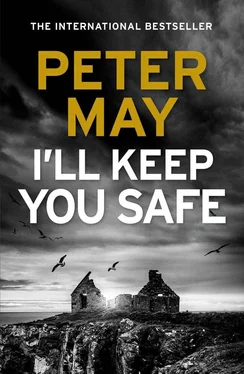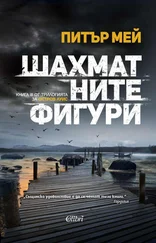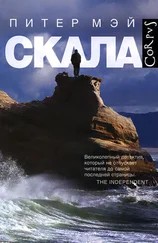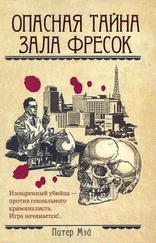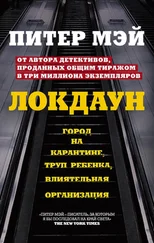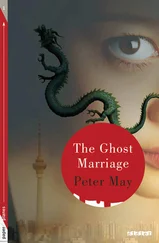When the MV Loch Seaforth finally powered her way around the headland Niamh’s heart pushed up into her throat. The Loch Seaforth was a big, luxurious ferry compared with her predecessors, the Isle of Lewis and the Suilven . It was the Suilven that had ferried Niamh back and forth to the mainland in her early student days, sailing right up until the mid-Nineties, when the boat was sold into service between the North and South Islands of New Zealand, only to capsize and sink in Fiji twenty years later.
This new ferry seemed huge, with her three levels of passenger deck above a vast hull that carried the cars of the tourists and the trucks that supplied the islands with most of their provisions. Niamh waited until the very last minute, when she could see passengers streaming off the boat, before abandoning the remains of her coffee and crossing the road to the car park.
She was shocked by how much Uilleam had aged since the last time she had seen him. His once black hair brushed through with steel and thinning a little. He had developed the stoop that so many taller people adopt as they grow older, as if bowed by years of leaning down to hear the chatter of all those smaller people around them.
He was wheeling a suitcase and she stood waiting by the car as he approached her across the tarmac. To her astonishment, when he reached her, he released the suitcase and folded his arms around her, with all the protective big brother love she remembered from when they were children. She buried her face in his chest and wished away all the miserable years between then and now. Remembering how it had been, and what it was that had caused the rift.
I turned fifteen not long before it happened.
They say that your teens are a difficult time, and that your mid-teens are the worst. But for the most part I enjoyed my teenage years. That transition from childhood to womanhood was so full of discovery and pleasure that I revelled in it — apart from its one obvious downside. I embraced the changes that were moulding me, growing into the young woman I was to become. Secondary school gave way to further education and then to real life beyond. But right then, it was the Nicolson that was stretching my mind and my imagination. I was enjoying the challenge. The world seemed full of possibilities. The sun shone endlessly that summer, at least in my recollection, and the freedom I enjoyed in finding myself was simply delicious.
The cares of the world had not yet descended on my young shoulders, my independence unfettered by adult prohibition, and if I could have lived the rest of my life in that state of uncomplicated serenity I would have made that choice without a second thought. But as summer inevitably fades to autumn and then winter, such happiness could not be sustained, and I could never have foreseen the tragedy that brought it to an end.
Every other summer my uncle Hector would arrive from his home in the south of England with his exotic English wife, Rita. At least, exotic is how she seemed to us. She spoke with a creamy posh accent, a large-bosomed, bountiful lady whose perfume smelled of flowers. She wore glamorous clothes that looked as if they were just off the peg, and extravagant hats that she always had trouble keeping on her head in the wind.
My uncle, who was my father’s brother, was a doctor, and to us seemed fabulously wealthy. He and Rita lived in a big house in a picturesque village somewhere in the county of Hampshire. We had never been, mainly I think because my father could not afford the cost of travel for the whole family. But we had seen plenty of photographs, and to me it was like another world. A place you might read about in books.
Although my uncle was just an islander like us, he seemed different somehow. Better. He had ironed out his island accent, the blas he had acquired from speaking Gaelic as he grew up, and had made a success of his life in a bigger pond. It is a character trait of islanders to believe that they have to go away to better themselves, and perhaps the mainland offers more opportunity. But, in truth, I think that we are who we will be regardless of where we might end up. And most islanders, in the final event, come back. Or, at least, want to.
Visitors to our house slept in the caravan that we kept in the garden. But Uncle Hector and Aunt Rita always got my room. Not that they thought they were above sleeping in the caravan. It was my mother who thought that.
I was always delighted when they came to stay, because I was the one who got to be in the caravan. I loved it. My own little world, quite separate from the house and the rest of the family. As if I was all grown up and on holiday by myself.
It was usually August that they came to stay, when my uncle could get a locum to look after his surgery. They took three or four days to motor up, normally via Skye, taking the car ferry from Uig over to Tarbert in Harris, and driving up through Lochs. Uncle Hector liked his cars, and they always arrived in something big and shiny and expensive that made our wee Ford Fiesta seem dowdy and old. This particular year they turned up in a car the likes of which none of us had ever seen before. And not just us. It turned heads everywhere it went on the island, and I’m sure on the mainland, too.
It was what my uncle called a vintage car. A Humber Hawk. A big black sleek American-looking thing with a green-leather bench seat in the front and a column gear change. My uncle was so proud of it. ‘They stopped making these in sixty-seven,’ he told us, more than once. He frequently related the story of how Rita’s father had bought one of the last models off the production line, about the same time The Beatles were releasing Sgt. Pepper’s , but never registered it. He had kept it in his garage, wrapped almost literally in cotton wool. It was another thirteen years before he finally declared it to the authorities, registering it in 1980, and making it unique and very nearly priceless. He had gifted it to Hector and Rita as a wedding present.
The couple had treasured it ever since, keeping it mostly in the garage and taking it out on only rare occasions. It was the first time they had brought it up to the Hebrides.
Me and Anndra and Uilleam crowded into the back seat and rode like royalty around the island when my aunt and uncle took us shopping in Stornoway, or out for the day to Uig, or Luskentyre in Harris. It made you want to wave from the window, like the Queen, when people would turn their heads to watch us going by. Other motorists would slow almost to a stop in passing places so they could get a better look.
From time to time Anndra got to sit up front. He must have been nearly seventeen by then, and desperate to learn to drive. But lessons cost money, and it was likely he couldn’t afford it until he was out working himself. Which would be some way off. Because he was anxious to go to university in Glasgow to study Gaelic.
One day, on the road down to Uig, Uncle Hector turned off on to a disused stretch of single-track and got out of the car. He waved Anndra into the driver’s seat. ‘On you go, son,’ he said. ‘Just a few hundred yards, mind. But it’ll be enough to give you a feel for it.’ And my uncle slipped into the passenger seat beside him and gave him instructions. It was quite a sacrifice for Uncle Hector to take a risk like that, and I can remember him wincing as Anndra crunched into first gear. But once my brother got her running, it was a smooth drive in a straight line, and he actually managed to get into top gear before finally running out of road and slowing to a stop. We all clapped, and Anndra glowed with pleasure. Uncle Hector said, ‘One day maybe, Anndra, I’ll leave her to you in my will.’ Me and Uilleam were dead jealous.
Читать дальше
